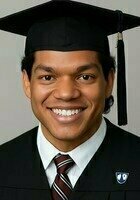Connect with hundreds of tutors like Ivy
Who needs tutoring?
FEATURED BY
TUTORS FROM
- YaleUniversity
- PrincetonUniversity
- StanfordUniversity
- CornellUniversity

Ivy
About Me
I was born and raised in southeast China, where it has four seasons and plenty of rain. My love for language and creative writing came at a very early age. By the time I graduated from high school, I had won four first prizes in four city-wide writing competitions. In 2007, I went on to study Chinese language and literature at Beijing Language and Culture University, where I won another first prize in the university-wide playwright competition. Following my graduation in 2011, I spent a gap year honing my creative writing skills in my second language, English. In 2012, I was accepted by the creative writing -- poetry program at New York University with a full-ride tuition scholarship. In the following two years, I studied English poetry writing with Sharon Olds, Charles Simic, Yusef Komunyakaa etc, and graduated with a Master of Fine Arts in 2014. While I was developing a bilingual writer's career and having my work published in different magazines, I was also passionate about the nonprofit and development world. I had amazing internship and volunteering experience at United Nations Population Fund, Asia Society, the Metropolitan Museum of Arts etc., strengthening my editing, communications, marketing, PR and administrative skills. I have also founded the translation business Transwords Translations LLC (transwords.net), and have completed numerous translation projects between English and Chinese for Asia Society, Museum of Chinese in America, Pen America etc. As a dedicated language learner and advocate for cross-cultural communications, I am excited to use my bilingual language learning and writing experience to help others overcome their language learning and interpersonal communication barriers to advance their academic and professional goals. I currently live in Atlanta, working on a nonfiction book about my experience growing up in China. I appreciate the seasonal rain in southeast America.
Education & Certifications
Q&A with Ivy
Connect with a tutor like Ivy
Connect with a tutor like Ivy
Tutors with Similar Experience


